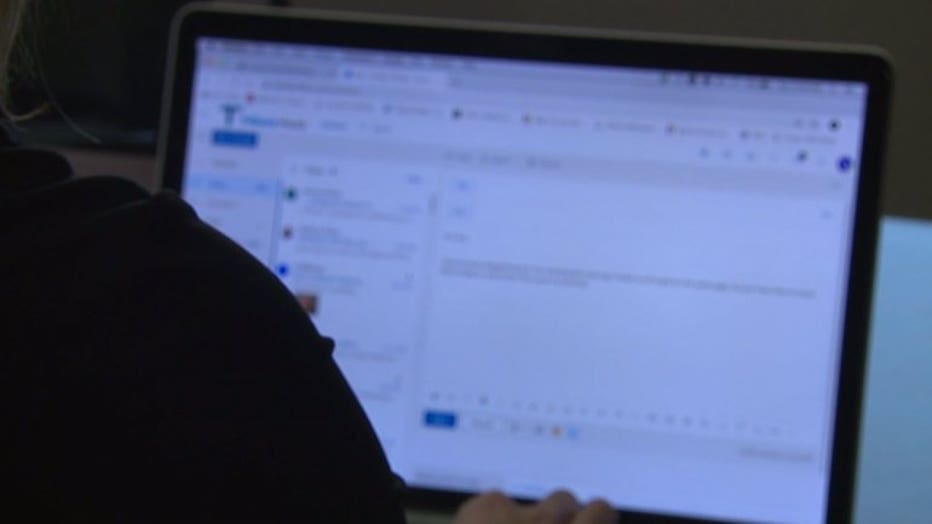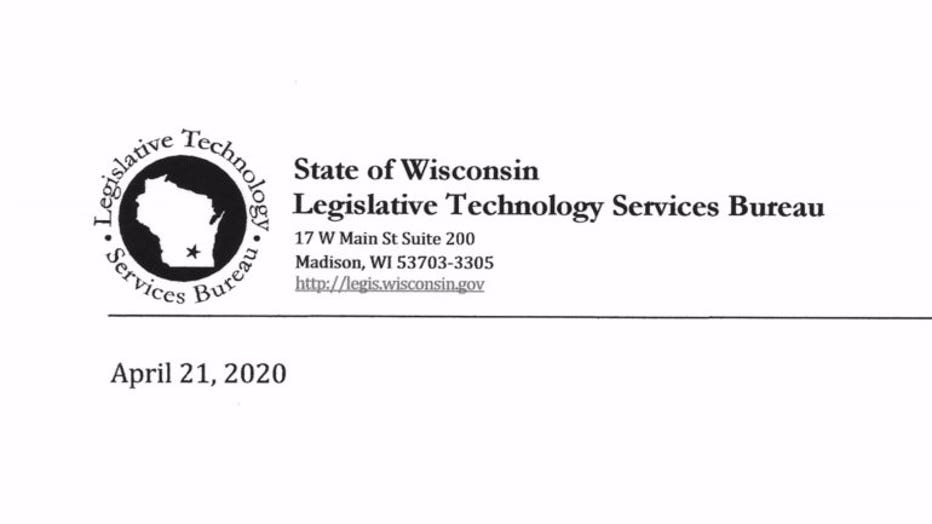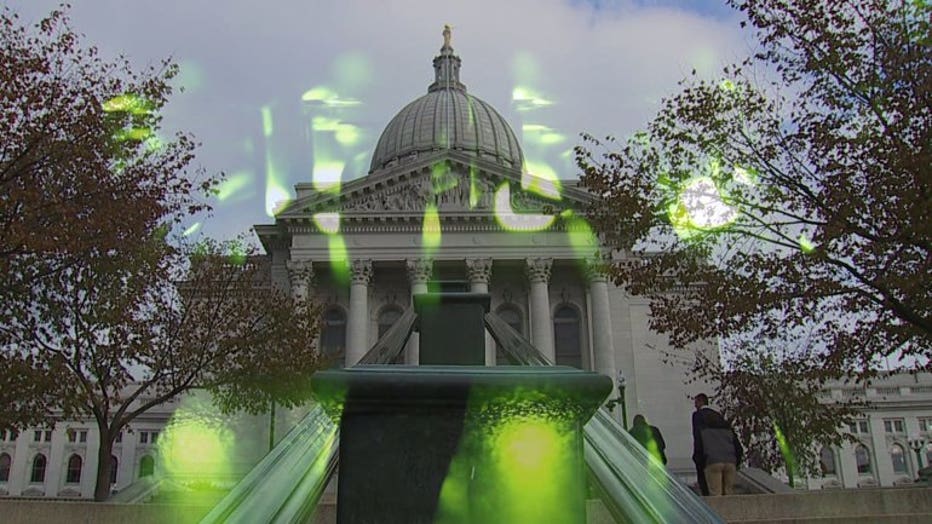Wisconsin's 'dark agency:' Legislative bureau denies public access to email, voting records
Wisconsin`s `dark agency:` Legislative bureau denies public access to voting, email records
Wisconsin`s `dark agency:` Legislative bureau denies public access to voting, email records

MILWAUKEE -- As COVID-19 forces Wisconsin state lawmakers to increasingly rely on technology, the bureau responsible for the legislature's technology support is refusing to release public records. "It's a cover-up," State Senator Tim Carpenter (D-Milwaukee) said. "This, in the big picture, is something that’s very dangerous." Carpenter was frustrated with his inability to be recognized during the Senate's recent floor session about COVID-19 legislation. He filed an open records request with the nonpartisan Legislative Technology Services Bureau (LTSB), asking in part for records showing which of his colleagues had requested technical support or attempted to speak during the session.

Carpenter also requested correspondence about the virtual session between the LTSB and Senate Majority Leader Scott Fitzgerald (R-Juneau) and Senate President Roger Roth (R-Appleton). LTSB Director Jeff Ylvisaker denied Carpenter's request. "I was told, and I’m shocked by it, that is considered secret and confidential that it cannot be released to the public," Carpenter said.

Why it matters The Legislative Technology Services Bureau was created in 1997. As technology has become more expansive, so have the responsibilities of the bureau. In addition to offering legislative technical support, LTSB handles bill drafting and virtual voting software, publishing systems for Wisconsin laws, and redistricting and elections data. It also creates and maintains public records consistent with taxpayer-funded agencies, such as emails, payroll records, and expense reports. A 2004 Wisconsin Supreme Court highlights LTSB's role as an "electronic storage closet" for all legislature communications, maintaining “backup tapes” of all data supporting the entire legislative branch of government. The court said there are cases in which that specific "storage closet" of data is confidential, but it did not expand that classification to all the other information LTSB maintains."So that doesn’t mean everything that the LTSB does should be hidden from public view," Wisconsin Transparency Project founder and open records attorney Tom Kamenick said. "Everything the writes, all their correspondence should be open to public inspection. Their own personnel documents, their own policy documents -those should be open for inspection as well.""So for them to be taking the position that things don’t see the light of day once they go in there is very concerning when they have acknowledged previously that they’re providing a key role," April Barker, open records attorney for Schott, Bublitz & Engel, said. "It's even more significant as we become more and more dependent on technology."

The denial In a letter to Carpenter, Ylvisaker wrote that his requests for public records were denied because "the Legislative Technology Services Bureau is required to at all times observe the confidential nature of the data and information originated, maintained, or processed by electronic equipment supported by it." Ylivisaker did not elaborate on why he considers the emails and voting records Carpenter sought "confidential." He did tell FOX6 that it is not his position that all LTSB records are confidential. In an email, Ylivisaker wrote, "Each open records request requires its own evaluation to determine what, if any, responsive materials exist, who the legal custodian of those records is, whether or not the data is confidential, and possibly other considerations based on the specific request." "So I looked at the statute that they’re relying on, and it’s not as clear as they seem to think it is," Kamenick said. Ylivisaker's denial of Carpenter's request quoted Wisconsin Statute 13.96, which outlines the duties of the LTSB. Kamenick and Barker both point out the statute does not say everything in the LTSB's possession is confidential, simply that it must protect data that is confidential. Kamenick and Barker reviewed LTSB's denial of Carpenter's request for emails and voting information. They say they can't think of a reason the records in question would be considered confidential, and believe the public should be able to see the information. "The idea of keeping very careful count of roll call votes goes way way way back to the early English parliament," Kamenick said. "It's very important for people to know exactly how their representatives vote. And they need to know that the electronic systems they have for tracking those votes are accurate and are being kept up to date.""I don’t understand anyone to be arguing the public welfare requires secrecy, and I don’t understand anyone to be arguing that they technologically could not make that information available to the public," Barker said. "They’re just saying they choose not to.""So we’re having this information all managed and stored and handled by essentially a dark agency," Barker continued. "And once it goes into that dark agency, it never sees the light of day again." Barker says the denial of Carpenter's request is possibly a violation of Wisconsin Statute 13.42, which governs virtual meetings of the legislature. The statute says the public's ability to monitor the proceedings is a condition of holding a virtual session. However, the LTSB is now blocking the public from seeing records that show parts of those proceedings. "We need to know that the legislators’ votes have been recorded appropriately, and that there hasn’t been any interference, technological or otherwise, with what the legislators have done," Barker said. "I think this is a surprise for a lot of transparency advocates to find out that this agency that`s a repository of legislative data is somehow being considered a vault of information.

